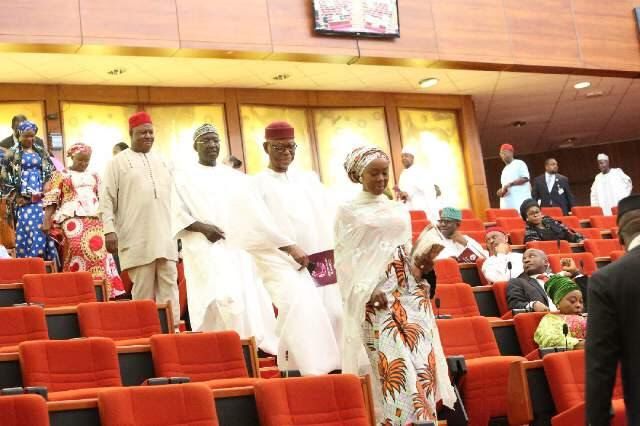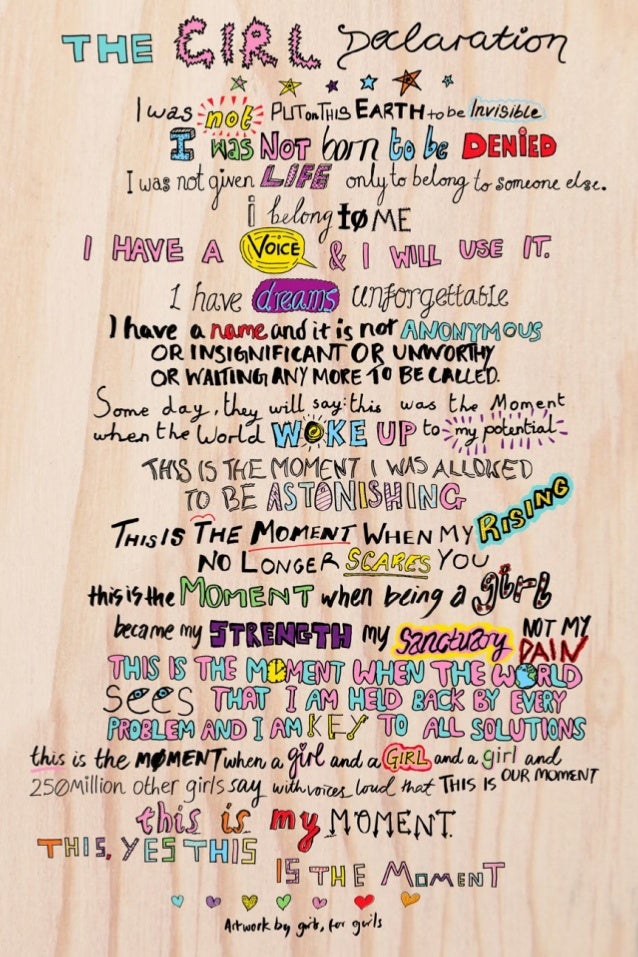Categories
Today I write in disappointment and dismay, but undaunted. I am filled with the determination that Nigeria’s women must succeed.
As I write this note, Nigeria’s lawmakers – elected and empowered primarily and federally to protect and uphold the rights and dignities of the Nigerian people – have once again cemented another painful setback for us, our women and girls.
On Tuesday the 1st of March, Members of the 9th Session of the National Assembly’s House of Representatives voted a loudly reverberating, and disregarding no to four gender-sensitive bills proffered within the review of 68 amendments to the 1999 Constitution:
A bill to provide 111 special seats for women in the National and State Houses of Assembly – Rejected
A bill to expand of the scope of citizenship by registration – Rejected
A bill for Affirmative Action for women in political party administration and leadership – Rejected.
A bill to reserve a quota for women (on political appointments) – Rejected.
The denial of passage of these bills illustrate the palpable opposition to opening the space for women’s participation in everyday politics, governance and in the exercise of our rights and power. We are furious.
Women are locked in a cage of underrepresentation in Nigeria. As of February 2021, only 3.6% of seats in parliament were held by women in a country where 49% of the population is female. Currently, only seven out of 109 senators and 22 of the 360 House of Representatives members are women. The legislature, like many arms of the Federal Government, is an old boys club where girls are not welcome.

Making gains has been difficult. In the previous 8th National Assembly, we came closer than ever before with the passage of transformative legislation. However, with yesterday’s raucous dismissal of the most recent gender-sensitive bills, announced amidst the belly laughs of Senators and Honourables, previously visited by the First Lady, and witnessed on the dire day by the Second Lady respectively, the 9th National Assembly is sending a glaring message to the world: greater political representation of women is not welcome in our hallowed chambers, and within the boundaries and coasts of our shores.
So I find myself asking, like many others, does Nigeria respect the rights of women?
It is greater representation and equality of opportunity that has been proven, through decades and across nations, to be the pivot and the panacea in building and sustaining strong, vibrant democracies. Where calm deliberations around inclusivity breeds responsive policies and enabling environments that are designed for the very people that need them. Yesterday’s actions only reveal that the perceived worth of women, and our ability to lead and participate with effectiveness and substance, to add value to our economies, government and communities – is largely disrespected and grossly undervalued.
Take for instance the matter of citizenship, which has come to be seen as something as universal as DNA – an innate equality. Citizenship is a juristic and political status where the individual enjoys full, legally sanctioned membership in his or her state and owes full allegiance to it, regardless of gender. Yet while a man can pass citizenship to his wife, much like passing on his DNA to his child, the 1999 Constitution discriminates against the woman seeking to pass citizenship on to her spouse. She is denied equal nationality rights, her spouse rendered stateless, unrecognised as a citizen in his wife’s country.
In roughly 50 countries such laws are often the legacy of practices implemented under colonial rule, digging insidious roots in old systems that hold women to be unequal to men. But even Africa is shedding this skin and stepping boldly into modernity. Our neighbours work to secure contemporary Nationality laws that don’t discriminate on the basis of gender and instead align with global consensus embodied through platforms such as the Convention on the Elimination of All Forms of Discrimination against Women (CEDAW), which explicitly obliges States to guarantee equal nationality rights to women (Article 9). Gender equality can never be realized in a country that maintains gender-discriminatory nationality laws.
But the actions of the 9th National Assembly go beyond equality. It reflects the lack of equity and opportunity for women and girls, and our entire female gender, under the Constitution. There is no justice for women without equality.
If understanding justice to be righting the wrong and compensating the marginalised – our lawmakers recognise no injustice.
The bill for Affirmative Action for women in political party administration and leadership has its foundation in this understanding of compensatory justice- that through greater representation, we are securing a systematic way of “righting the wrong” for women, achieving both equality and reparation, without force. We have seen this approach come to life in countries like Rwanda and South Africa who have used a quota system to pave the way for women representation in politics. In Rwanda, over 50% of political positions are held by women and we see a similar case in Ethiopia’s 50% women cabinet. Role models have been nurtured, and pave the way of other women to rise to positions of power and aspire to leadership positions. Affirmative action is not the end, but merely a means to promote true, lasting diversity and open the gateways for political, economic and social equality.
For so long, Nigeria’s women have been handed the crumbs of the national cake, forced into a silent corner, only to cry into an open void. But enough is enough.
The state of our nation will never improve, until our representatives actually respect and accurately reflect our values, voices and realities, break the bias and ultimately balance that reflection with our national aspiration.
I remain dismayed not only because yesterday was truly a dark day of discrimination against women in Nigeria and indeed for women all around the world. But because I believe this act is beyond ineptitude – and signposts Misogyny: the misogyny against protecting our rights, and chance to live, thrive and flourish equally.
From a civil society perspective, there is a bright klieglight on the pathway to change.
With gender equality fuelling our advocacy and programme strategies, the Wellbeing Foundation Africa has played notable roles in the major events that have shaped the course of campaigns for the rights of women and girls globally since the Beijing Declaration in 1995. Most notably committing to the rise of women and girls through WBFA’s endorsement of The Girl Declaration launched in 2013, as a call to action that aims to ensure that adolescent girls are included in the post-2015 agenda, demanding that governments, organisations, individuals and other stakeholders LISTEN, and the Nairobi Statement on ICPD25: Accelerating the Promise, with its asks and commitments.

The Wellbeing Foundation Africa’s Women Girls And Gender Development Targets acknowledge the fundamental necessity of gender equality and the empowerment of all women and girls. Throughout our multi-layered strategy of research, advocacy, policy development, community engagement, philanthropy and education, we have prioritized women, adolescent girls, and children within our various programs mainly focusing on maternal and infant health, as well as sexual, reproductive, mental, and social health in order to empower and strengthen girls and women from birth to old age.
This WBFA WGGDT Strategic Actions are guided by items 1-5 of the Girl Declaration; 1-10 of the G7 Recommendations for Action from the Gender Equality Advisory Council (2019)4; and 2, 3, 4, 7, 9 10 and 11 of the Nairobi Statement on ICPD25: Accelerating the Promise.
When we fail to act, we wage war on hope and on the possibility of a better future for the generations that will follow. We assault the inalienable and fundamental human value we have within. But instead, let us not be defeated. But gather our collective power to step across this gender precipice to stronger safer grounds, galvanise our voices, and brace ourselves, beyond protest, to wage the war for affirmative action. For Nigeria belongs to all of us and we will not be reduced by a fleeting few, but storm forward in our fight for what is already ours. Equity, and Equality now.
Update on March 8th, 2022: I welcome today’s breaking news that the Federal House of Representatives has rescinded their negative decisions, and announced the re-consideration of 3 of the 4 bills: on citizenship, indigeneship and 35% affirmative action for women. We must continue to work collectively to advance women and girls rights in Nigeria.
Categories